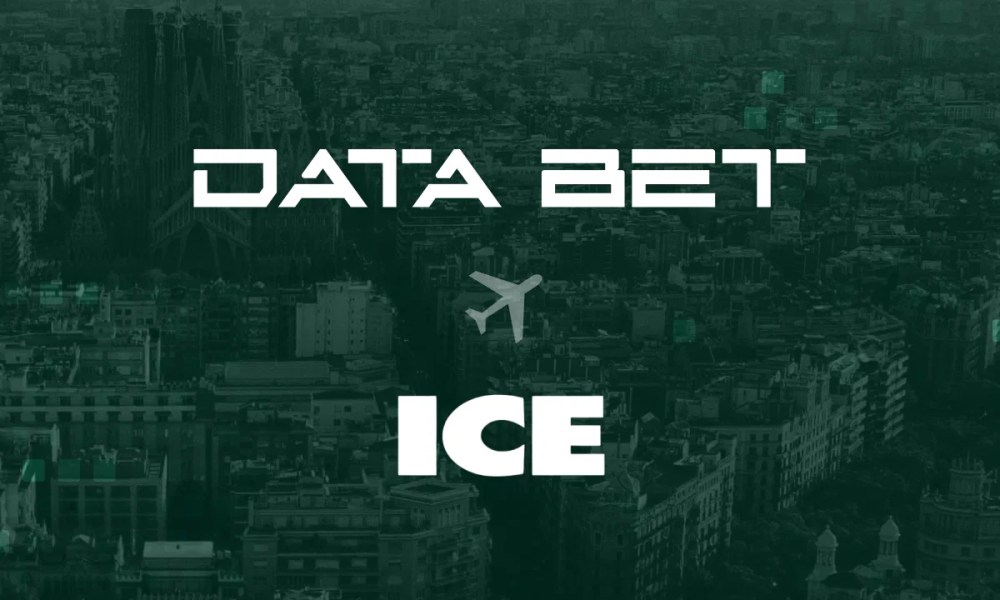Latest News
Gaming Corps now Live in Slovakia with Market-First Plinko Launch
Gaming Corps – a publicly-listed game development company based in Sweden – has now gone live in Slovakia through its partnership with Fortuna Entertainment Group, marking a major step forward in the company’s Central and Eastern European expansion. This launch also sees Gaming Corps become the first provider to introduce a certified Plinko title to the Slovak market.
The milestone follows the announcement of the partnership between the two firms last year, and the collaboration is now in full swing and has begun the roll out of 10 games starting with 2 new-to-market Plinko titles
The inclusion of Plinko, a format gaining rapid popularity among players, makes Fortuna the first operator in Slovakia to offer this genre, solidifying the group’s commitment to differentiated, best-in-class content.
Danielle Calafato, Chief Commercial Officer at Gaming Corps, said: “We’re incredibly proud to be live in Slovakia with Fortuna – a top-tier operator that shares our passion for innovation. Bringing the first certified Plinko game to the Slovak market is a real achievement, and it’s a clear reflection of our commitment to providing unique, next-generation content to regulated markets. This launch highlights not only the strength of our partnership with Fortuna, but also our shared ambition to lead, not follow, when it comes to content strategy.”
Michael Foster, Group Head of Commercial Gaming Operations at Fortuna Entertainment Group, added: “At Fortuna, we’re always striving to deliver fresh, first-to-market content that sets us apart, so we’re thrilled to be the first operator to introduce Plinko to players in Slovakia through our partnership with Gaming Corps. The early response from players has been extremely encouraging, and we see this as just the beginning. I’m looking forward to building on this momentum and exploring even more exclusive releases together.”
Slovakia’s iGaming market continues to gain momentum, with a steady rise in mobile adoption and gross gaming revenue forecast to exceed €200 million annually by 2027. The combination of Gaming Corps’ unique content and Fortuna’s extensive reach positions both companies strongly in this growing market.
The post Gaming Corps now Live in Slovakia with Market-First Plinko Launch appeared first on European Gaming Industry News.

Latest News
Arena Racing Company awarded United Arab Emirates Gaming-Related Vendor License
Arena Racing Company (ARC) has been granted a Gaming-Related Vendor license from the United Arab Emirates’ General Commercial Gaming Authority (GCGRA), an independent entity of the UAE Federal Government with exclusive jurisdiction to regulate, license, and supervise all commercial gaming activities.
The license, operational with immediate effect, affords ARC the opportunity to provide its products and services to licensed operators in the region. Notably, the Racing1 Markets service, an all-in-one horse and greyhound racing solution delivered in conjunction with Racing1 alliance media rights partners at 1/ST CONTENT, Racecourse Media Group (RMG), and Tabcorp, alongside technical partner Pythia Sports. ARC has been added to the list of licensed vendors as per the GCGRA website.
Jack Whitaker, Commercial Manager at ARC, said: “Obtaining this license is a great achievement for ARC and its Racing1 partners. The emerging regulated UAE market is incredibly exciting, and we look forward to showcasing our innovative products and services in the region.”
The post Arena Racing Company awarded United Arab Emirates Gaming-Related Vendor License appeared first on Gaming and Gambling Industry Newsroom.
Latest News
Play’n GO games now live with Ivy Casino in the UK
Swedish gaming giant’s industry signals commitment to the UK regulated market by launching it leading portfolio of games with Ivy Casino
Play’n GO, the world’s leading casino entertainment provider, has today announced that its industry leading portfolio of games is now live with Ivy Casino in the UK.
Ivy Casino’s players in the United Kingdom can now access global smash hits from Play’n GO, including Book of Dead, Legacy of Dead, and Rise of Olympus 100 among many others.
Ivy Casino is a UK-facing online casino brand that launched in 2024 with a focus on delivering a premium, player-centric experience tailored specifically for the UK market.
The brand operates alongside two sister sites, Rose Casino and O’Reels, which also serve UK audiences and share the same commitment to high-quality entertainment, strong user experience and robust responsible gaming standards.
Play’n GO has been one of the leading game suppliers in the UK for many years and is steadfast in its commitment to regulated markets globally.
Magnus Olsson, Chief Commercial Officer of Play’n GO, said:
“We are delighted to launch with Ivy Casino in the UK who, like us, are focused on all the key elements of operating within a regulated market framework. I’m sure this is just the beginning of a long and fruitful partnership.”
Mark Good, representing Ivy Casino, said:
“This partnership with Play’n GO forms part of Ivy Casino’s ongoing strategy to enhance its content offering for UK players by collaborating with leading studios known for creative, engaging gameplay.”
Play’n GO is a proud sponsor of the Moneygram Haas Formula 1 team, and recently launched a fashion brand, Play’n GO Shop, to sit alongside its existing Play’n GO Music brand to give fans more ways to connect with Play’n GO.
In October, Play’n GO set a world record by launching everyone’s favourite slot character, Garga, into space reaching a height of over 35,500m as part of the launch campaign for Reactoonz 100 which instantly became one of the biggest game launches of the year for the company.
The post Play’n GO games now live with Ivy Casino in the UK appeared first on Gaming and Gambling Industry Newsroom.
Latest News
Esportes da Sorte strengthens brand presence during New Year’s Eve celebrations across four Brazilian capitals
Esportes da Sorte, one of Brazil’s leading online betting platforms, will be the official sponsor of New Year’s Eve celebrations in four Brazilian capitals: Salvador, Recife, Natal and Maceió. The initiative reinforces the brand’s growing presence in the national cultural calendar and its strategy to connect with large-scale public celebrations beyond the digital environment.
New Year’s Eve is one of Brazil’s most significant annual moments, marked by intense domestic travel, international tourism and mass public participation. By supporting celebrations in four key destinations, Esportes da Sorte aligns its brand with tradition, culture and shared experiences that resonate deeply with local communities.
“Sponsoring New Year’s Eve celebrations in four capitals reflects our commitment to being present in moments that bring people together,” said Marcela Campos, Vice President of the Esportes Gaming Brasil Group, owner of the Esportes da Sorte brand. “Supporting these cities means valuing their cultural identity, strengthening local ecosystems and celebrating the people who keep these traditions alive year after year.”
Across all four capitals, the brand will activate its presence through immersive experiences, public-facing activations and the distribution of branded giveaways — a hallmark of Esportes da Sorte’s engagement strategy at major events. The activations are designed to enhance the festive atmosphere while reinforcing the brand’s connection with culture, entertainment and responsible enjoyment.
The New Year’s Eve sponsorships build on Esportes da Sorte’s broader cultural engagement strategy, which includes long-standing support for large-scale events such as Carnatal, in Rio Grande do Norte — a key fixture in the state’s tourism and cultural calendar. Together, these initiatives reflect the company’s commitment to expanding its footprint in cultural sponsorships nationwide.
Esportes da Sorte’s participation also mirrors a wider trend within Brazil’s regulated betting market, as operators increasingly diversify their sponsorship portfolios beyond football. Music, festivals and cultural celebrations have become strategic platforms for brands seeking broader visibility, deeper community ties and more sustainable engagement with the public.
The post Esportes da Sorte strengthens brand presence during New Year’s Eve celebrations across four Brazilian capitals appeared first on Gaming and Gambling Industry Newsroom.
-

 Latest News1 week ago
Latest News1 week agoSCCG Announces Strategic Partnership with Yellow Elephant Studios to Expand Multi-Channel Gaming Content Worldwide
-
Latest News3 months ago
Announcement: 25th September 2025
-
Latest News1 month ago
JioBLAST Launches All Stars vs India powered by Campa Energy: A New Era of Creator-Driven Esports Entertainment
-
Latest News3 months ago
The Countdown is On: Less Than 3 Months to Go Until The Games of The Future 2025 Kicks Off in Abu Dhabi
-
eSports1 month ago
CS:GO Betting Gains Momentum in the iGaming Sector
-
Latest News2 weeks ago
THE 2025 PUBG MOBILE GLOBAL CHAMPIONSHIP GROUP STAGE WRAPS UP WITH LAST CHANCE IN SIGHT
-
Latest News3 months ago
Evolution launches Sneaky Slots — a Bold New Slot Studio
-
Latest News3 months ago
Leading The Charge! Euronics Group Joins LEC As Official Electronics Retail Partner













You must be logged in to post a comment Login